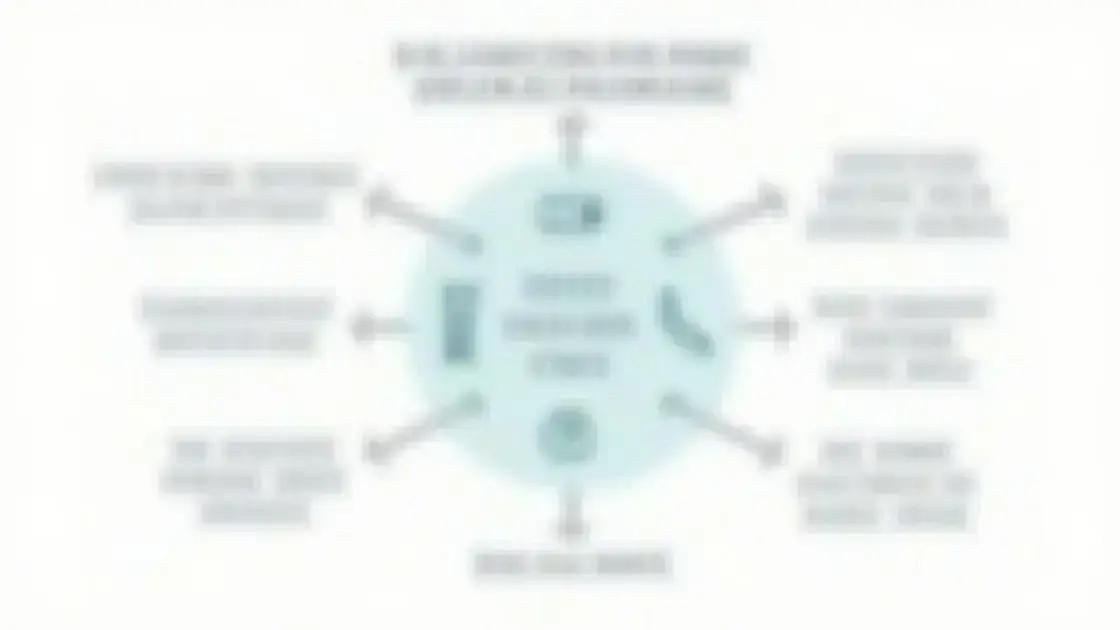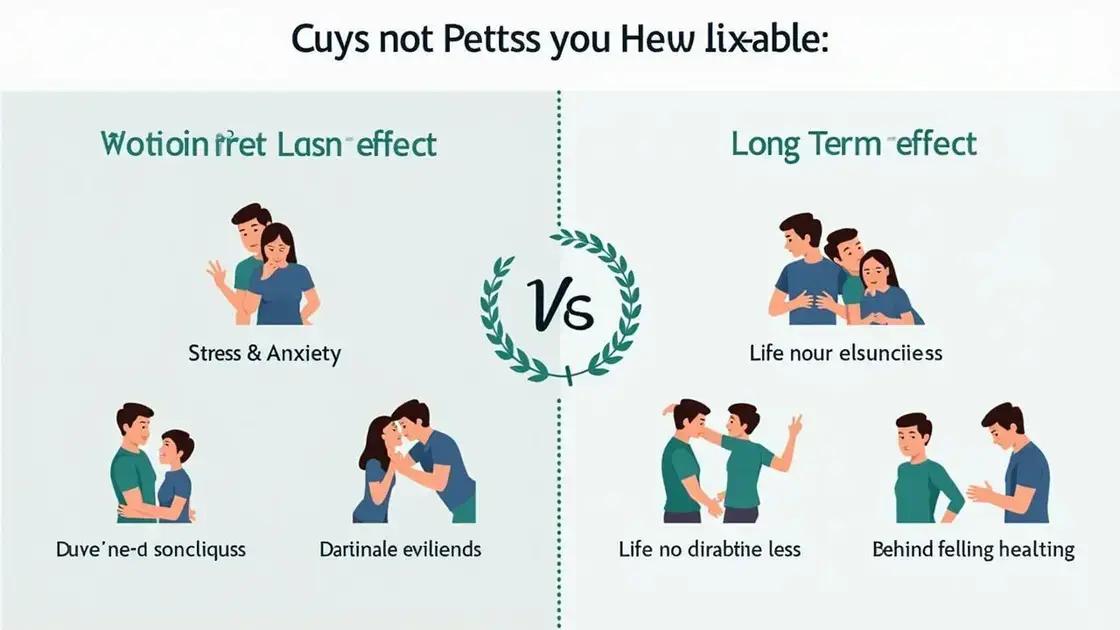Erectile dysfunction (ED) can significantly impact future sexual function, but it is important to understand its causes and available treatments. Common factors include physical health issues and psychological concerns, both of which can lead to short-term and long-term effects on self-esteem and relationships. Seeking help through medical advice, lifestyle changes, and therapy can greatly improve sexual health and quality of life.
Erectile dysfunction (ED) is a common issue that a significant number of men face, leading to concerns about future sexual function. Many wonder, “Does erectile dysfunction impact future sexual function permanently?” This question is crucial, as it not only influences one’s self-esteem but also affects relationships. In this article, we will delve into the causes of ED, explore both short-term and long-term effects, discuss the psychological impacts, and highlight the importance of seeking help. Understanding these aspects is essential for promoting sexual health and overall well-being.
Understanding Erectile Dysfunction

Erectile dysfunction (ED) affects many men at some point in their lives. It refers to the inability to achieve or maintain an erection suitable for sexual intercourse. Understanding ED is crucial for addressing concerns about its impact on future sexual function.
What Causes Erectile Dysfunction?
Many factors contribute to ED. These can include physical issues, such as diabetes, heart disease, and obesity, as well as psychological factors like anxiety, depression, and stress.
Physical Health Factors
Chronic health conditions can disrupt blood flow and nerve function. For example, diabetes can damage blood vessels, which is vital for achieving an erection. Heart disease can limit blood flow, and obesity can lead to hormonal changes.
Psychological Factors
Emotional health plays a significant role in sexual function. Anxiety about performance and relationship issues can exacerbate the situation. Recognizing these psychological components is key to understanding and addressing ED.
Age and Erectile Dysfunction
Age increases the likelihood of encountering ED. As men age, they may experience changes in hormone levels and physical health, which can contribute to sexual difficulties.
Social and Lifestyle Considerations
Lifestyle choices, such as smoking, excessive alcohol consumption, and a sedentary lifestyle, can also lead to ED. Making healthier choices can significantly improve sexual function.
Understanding erectile dysfunction is the first step toward finding effective solutions. Awareness of both physical and psychological factors can empower men to seek appropriate help.
Causes of Erectile Dysfunction

Erectile dysfunction (ED) can arise from various factors that affect sexual arousal and performance. Understanding the causes of ED is important for effective treatment.
1. Physical Health Conditions
Several chronic health conditions can lead to ED. Cardiovascular diseases affect blood flow, which is critical for an erection. Diabetes can damage blood vessels and nerves, impairing sexual function.
2. Hormonal Imbalances
Hormonal changes can significantly impact sexual health. Low levels of testosterone can lead to a decline in libido and erectile function. Conditions like hypogonadism can contribute to these hormonal changes.
3. Psychological Issues
Emotional health plays a crucial role in ED. Anxiety, depression, and stress create barriers to sexual arousal. Performance anxiety can also prevent a man from feeling relaxed enough to achieve an erection.
4. Lifestyle Factors
Unhealthy lifestyle choices, such as smoking and excessive alcohol consumption, can increase the risk of ED. Obesity is another significant factor that can lead to erectile difficulties due to its effects on hormone levels and cardiovascular health.
5. Medications
Certain medications may have side effects that contribute to ED. Drugs used to treat depression, hypertension, and other conditions can affect sexual function. Always consult a healthcare provider about potential side effects.
Identifying the underlying causes of erectile dysfunction is essential for determining the appropriate treatment. A combination of physical and psychological factors often plays a role in this issue.
Short-Term vs Long-Term Effects

Erectile dysfunction (ED) can lead to both short-term and long-term effects on sexual health. Understanding these impacts is essential for anyone concerned about their sexual function.
Short-Term Effects
In the short term, ED can create immediate challenges for intimacy and relationships. Many men experience feelings of frustration, embarrassment, or anxiety during sexual encounters. This can reduce confidence and impact sexual arousal, leading to a cycle of difficulty.
Emotional Impact
Short-term ED can result in increased stress and tension between partners. When one partner experiences ED, it may create feelings of inadequacy or confusion for both individuals, affecting their overall relationship dynamics.
Long-Term Effects
If left untreated, erectile dysfunction can have more prolonged consequences. Long-term ED can negatively influence a man’s self-esteem and sexual identity. Over time, these feelings can contribute to depression and further anxiety regarding sexual performance.
Impact on Relationships
Long-term ED may strain relationships. Partners may feel disconnected, leading to intimacy issues and a decrease in emotional closeness. Communication may diminish, creating a rift that could be difficult to mend.
Physical Health Considerations
Long-term erectile dysfunction can serve as a warning sign for other serious health issues. Conditions such as heart disease or diabetes may go undiagnosed if erectile dysfunction is not addressed. Regular check-ups can help mitigate these risks.
Understanding both the short-term and long-term effects of erectile dysfunction is crucial for taking proactive steps towards health and intimacy.
Psychological Impact of ED

Erectile dysfunction (ED) has a significant psychological impact on men. Understanding these effects is crucial for addressing the emotional aspects of sexual health.
Feelings of Inadequacy
Men who experience ED often feel inadequate or less masculine. This feeling can lead to low self-esteem and a negative self-image. Society’s expectations of male sexuality can exacerbate these feelings.
Anxiety and Stress
Performance anxiety is common among men with ED. Worrying about the ability to perform can create a stressful cycle. Increased anxiety may make it even harder to achieve an erection, further contributing to the dysfunction.
Emotional Isolation
The psychological burden of ED can result in emotional isolation. Men may withdraw from their partners, avoiding intimacy to escape feelings of embarrassment. This withdrawal can damage relationships and increase feelings of loneliness.
Depression
There is a strong link between ED and depression. The ongoing challenges presented by erectile dysfunction can lead to persistent sadness and feelings of hopelessness. In turn, depression can also worsen sexual function.
Impact on Relationships
ED affects not only the individual but also their partner. Communication may suffer, leading to misunderstandings and conflict. Partners may feel rejected or confused, contributing to a strained relationship dynamic.
Recognizing the psychological impact of erectile dysfunction is essential for promoting emotional well-being and encouraging open conversations about sexual health.
Seeking Help and Treatment Options

Seeking help for erectile dysfunction (ED) is an important step towards improving sexual health and overall well-being. A variety of treatment options are available that cater to different causes of ED.
Consulting a Healthcare Provider
The first step in addressing ED is to consult a healthcare provider. They can help diagnose the underlying causes and suggest appropriate treatments. Open communication with your doctor is essential to find the right solution.
Medications for ED
Many men respond well to medications. Common treatments include phosphodiesterase type 5 (PDE5) inhibitors such as Viagra, Cialis, and Levitra. These medications help increase blood flow to the penis, making it easier to achieve and maintain an erection.
Counseling and Therapy
If psychological factors contribute to ED, counseling or therapy may be beneficial. A mental health professional can help address issues like anxiety, depression, or performance fears. Couples therapy can also improve communication and intimacy between partners.
Lifestyle Changes
Making healthier lifestyle choices can significantly impact erectile function. Incorporating regular exercise, maintaining a balanced diet, managing stress, and quitting smoking may improve symptoms of ED. Reducing alcohol consumption is also beneficial for sexual health.
Other Treatment Options
In some cases, more advanced treatments may be necessary. These can include vacuum erection devices, penile injections, or surgical options such as penile implants. Your doctor can guide you through these options based on individual needs.
Seeking help for erectile dysfunction is vital for a fulfilling sexual life. Understanding the various treatment options helps empower men to take the necessary steps toward recovery.
Understanding Erectile Dysfunction and Its Impacts
Erectile dysfunction (ED) is a common issue that affects many men, both physically and emotionally. Recognizing the causes, symptoms, and effects of ED is essential for addressing this condition effectively.
Both short-term and long-term effects can significantly impact a man’s self-esteem and relationships. Importantly, the psychological ramifications of ED can lead to anxiety, depression, and a sense of isolation, which makes seeking help even more critical.
Fortunately, various treatment options are available, ranging from medications and counseling to lifestyle changes and advanced medical treatments. It is vital for individuals to consult healthcare providers to find the best strategies that suit their needs.
By understanding erectile dysfunction and engaging in open conversations about sexual health, men can work towards regaining confidence and improving their quality of life.
FAQ – Frequently Asked Questions about Erectile Dysfunction
What is erectile dysfunction?
Erectile dysfunction (ED) is the inability to achieve or maintain an erection sufficient for satisfactory sexual performance.
What causes erectile dysfunction?
ED can be caused by a variety of factors, including physical health issues, psychological concerns, lifestyle choices, and certain medications.
How can erectile dysfunction affect my mental health?
ED can lead to feelings of inadequacy, anxiety, and depression, which may strain relationships and cause emotional isolation.
What are the available treatment options for erectile dysfunction?
Treatment options include medications, counseling, lifestyle changes, and advanced treatments like injections or surgery, depending on individual needs.
Should I talk to my doctor about erectile dysfunction?
Yes, consulting a healthcare provider is essential for diagnosing the condition, discussing treatment options, and addressing any underlying health issues.
Can lifestyle changes help with erectile dysfunction?
Yes, adopting healthier habits such as regular exercise, a balanced diet, reducing alcohol consumption, and quitting smoking can improve erectile function.













